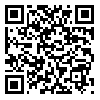دوره 12، شماره 3 - ( 3-1400 )
جلد 12 شماره 3 صفحات 382-373 |
برگشت به فهرست نسخه ها
Download citation:
BibTeX | RIS | EndNote | Medlars | ProCite | Reference Manager | RefWorks
Send citation to:



BibTeX | RIS | EndNote | Medlars | ProCite | Reference Manager | RefWorks
Send citation to:
Esfandiarifar A, Azarbayjani M A, Peeri M, Jameie S B. The Effect of Resistance Training and Berberine Chloride on the Apoptosis-related Unfolded Protein Response Signaling Pathway in the Hippocampus of Diazinon-poisoned Rats. BCN 2021; 12 (3) :373-382
URL: http://bcn.iums.ac.ir/article-1-1665-fa.html
URL: http://bcn.iums.ac.ir/article-1-1665-fa.html
The Effect of Resistance Training and Berberine Chloride on the Apoptosis-related Unfolded Protein Response Signaling Pathway in the Hippocampus of Diazinon-poisoned Rats. مجله علوم اعصاب پایه و بالینی. 1400; 12 (3) :373-382
چکیده:
Introduction: Diazinon is one of the most widely-used organophosphate pesticides in the world. This toxin enters the body in various ways and induces oxidative stress in various tissues. It has been proved that activation of Unfolded Protein Response (UPR) under oxidative stress is a steady mechanism for maintaining cell function and survival. Therefore, the present study aimed to review the effect of Resistance Training (RT) and Berberine Chloride (BC) on the apoptosis-related UPR signaling pathway in the hippocampus of diazinon-poisoned rats.
Methods: In this experimental study, 40 male Wistar rats weighing 250 ±50 g were randomly divided into eight groups of five rats of 1) diazinon + 2 mg/kg BC + RT, 2) diazinon + 15 mg/kg BC + RT, 3) diazinon, 4) diazinon + RT, 5) diazinon + 2 mg/kg BC, 6) diazinon + 15 mg/ kg BC, 7) healthy control, and 8) sham. The groups were treated for 5 weeks. At the end of the fifth week, ATF-4, ATF-6, and CHOP gene expression in hippocampus tissue were measured by quantitative real-time RT-PCR.
Results: Diazinon significantly increased the expression of ATF-4, ATF-6, and CHOP in the hippocampus tissue of rats. Administrating 15 mg/kg BC with RT significantly decreased these genes, indicating a decrease in the rate of apoptosis in the hippocampus.
Conclusion: This study showed that RT and BC have a protective effect against diazinon-induced toxicity in the hippocampus.
Methods: In this experimental study, 40 male Wistar rats weighing 250 ±50 g were randomly divided into eight groups of five rats of 1) diazinon + 2 mg/kg BC + RT, 2) diazinon + 15 mg/kg BC + RT, 3) diazinon, 4) diazinon + RT, 5) diazinon + 2 mg/kg BC, 6) diazinon + 15 mg/ kg BC, 7) healthy control, and 8) sham. The groups were treated for 5 weeks. At the end of the fifth week, ATF-4, ATF-6, and CHOP gene expression in hippocampus tissue were measured by quantitative real-time RT-PCR.
Results: Diazinon significantly increased the expression of ATF-4, ATF-6, and CHOP in the hippocampus tissue of rats. Administrating 15 mg/kg BC with RT significantly decreased these genes, indicating a decrease in the rate of apoptosis in the hippocampus.
Conclusion: This study showed that RT and BC have a protective effect against diazinon-induced toxicity in the hippocampus.
نوع مطالعه: Original |
موضوع مقاله:
Behavioral Neuroscience
دریافت: 1398/9/13 | پذیرش: 1398/12/15 | انتشار: 1400/2/11
دریافت: 1398/9/13 | پذیرش: 1398/12/15 | انتشار: 1400/2/11
| بازنشر اطلاعات | |
 |
این مقاله تحت شرایط Creative Commons Attribution-NonCommercial 4.0 International License قابل بازنشر است. |





